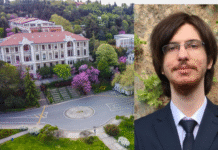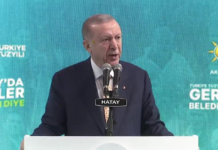The LGBT+ community in Turkey witnessed multiple acts of violence against its members last week with at least three transexual women suffering injuries or death, Deutsche Welle Turkish service (DW) reported.
A transwoman, Miras Güneş, was found dead in her apartment on March 12 in western İzmir province. Her face was disfigured beyond recognition, and a preliminary autopsy report revealed she was beaten to death. Five days later a 17-year-old Syrian transexual woman, identified as Asya, was attacked with acid by a man in Istanbul and sustained burns to her face and body. Another transexual woman was sexually assaulted in İstanbul on March 10 by a man who pulled a gun on her.
Efruz Kaya, an activist from transgender rights group Pink Life, told DW that the transexual community does not feel safe. “The male-dominated justice system does not care about us. There is no trust in the judicial authorities,” she said.
Kaya claimed that police officers had refused to take on the case of Asya, who went to the police after being threatened and beaten. She was attacked with acid three days later.
She said attacks on transgender people should not be seen as isolated incidents but as a social problem. “Hate crimes result from a very long history of discrimination. Such attacks are made possible in the first place by a system of inequality,” she added.
According to activist and lawyer Levent Pişkin, law enforcement in Turkey promotes homophobia and transphobia. “Far from being objective, vague concepts like morality and honor are used to justify a policy of impunity,” he said emphasizing that courts downplayed hate crimes against transgender persons.
Hate crimes and harassment are not only directed at the transgender community, as other members of the LGBT community are also targeted by conservative politicians and law enforcement. The government has been using increasingly harsh rhetoric towards the LGBT+ community.
In February Turkish President Recep Tayyip Erdoğan said there was no “such thing as LGBT” and that the country was “moral, and it will work with these values.”
The remark came after student protests began at Turkey’s prestigious Boğaziçi University, in which some LGBT+ groups were involved.
Erdoğan blasted the LGBT+ movement as incompatible with Turkey’s values and compared student protestors to “terrorists.”
Two Boğaziçi University students were arrested over a poster that depicted LGBT rainbow symbols alongside an image of the Kaaba in Mecca. The poster placed a mythical half-woman and half-snake over the Kaaba along with the flags of LGBT people. The text below it said the poster was a critique of traditional gender roles.
The police raided the Boğaziçi University LGTB+ student club and the Fine Arts Club and confiscated rainbow flags, posters and banners.
The first hearing in the trial of seven students who took part in the protests took place on Wednesday. The defendants are charged with “openly insulting religious values” because of the image.
Pişkin, one of the lawyers for the students, said the judge asked each student if they were “members of the LGBT+ community.” When Pişkin objected to the question, saying it was unconstitutional, the judge told him that until recently he did not even know the meaning of LGBT and did not care.
He said the indictment included references from religion and violated the Turkish constitution, which states that Turkey is a secular state with no official religion.
Speaking to the Diken news website, Pişkin said the indictment referred to the LGBT+ flag as a symbol of homosexuality and other sexual orientations that were considered forbidden in Islam.
Moreover, according to the indictment the image violated the doctrine of monotheism and that there was only one God in Islam.
Homosexuality is not illegal in Turkey, but homophobia is widespread. While there are no official figures, Turkey has slid down the LGBT rights index published by the International Lesbian, Gay, Bisexual, Trans and Intersex Association (ILGA). Last year, it was ranked 48th out of the 49 countries ILGA lists in its Eurasia region.















